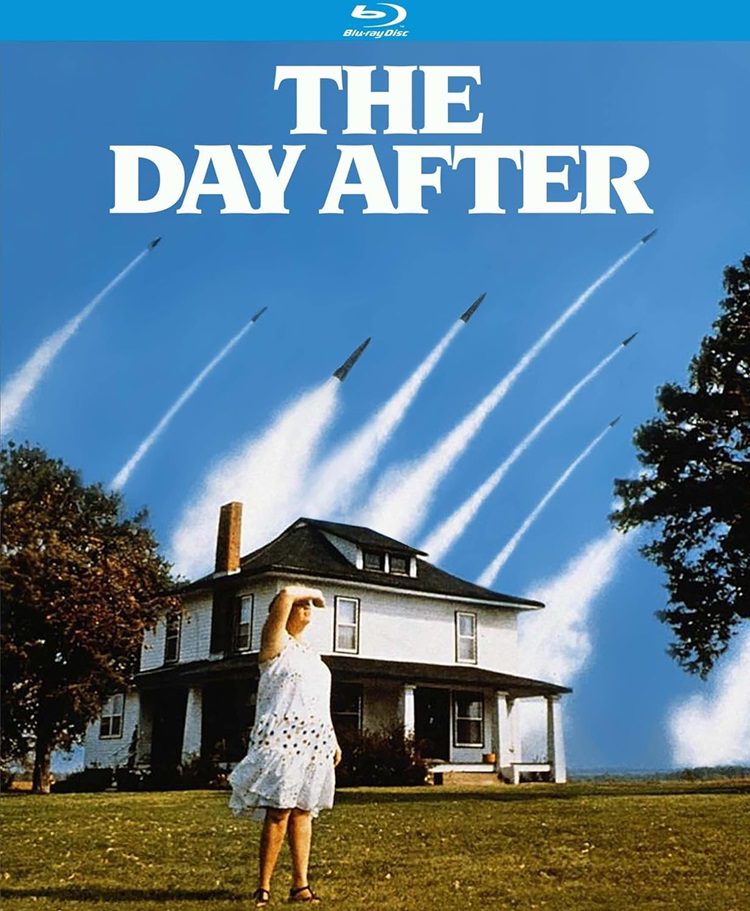
When it comes to nuclear annihilation, there have been many successful cinematic attempts to truly justify the horrifying reality of doomsday, such as Fail-Safe, Threads, The War Game, and On The Beach. However, in my opinion, director Nicholas Meyer’s 1983 landmark, The Day After, is the outing that most people remember. It may have been a TV movie, but that didn’t stop it from traumatizing an entire generation, telling a story of nuclear catastrophe experienced by everyday people.
Set mostly in Kansas and Missouri, the film takes place before, during, and after the U.S. and Russia go to war with each other, and how it affects everyone on such a personal matter. It is told in three parts: 1) the introduction of several pivotal characters (played amazingly by Jason Robards, Steve Guttenberg, John Lithgow, John Cullum, Amy Madigan, Lori Lethin, and JoBeth Williams) dealing with the serious realization of impending nuclear chaos; 2) the attack itself, which is very disturbing as you witness people and animals being obliterated in a matter of seconds (despite some pretty dated and primative special effects); and 3) the aftermath, which is just as bleak and devastating, as survivors deal with radiation poisoning, and the loss of loved ones, food, and their sanity.
Originally, Meyer wanted to detail much more graphic details, especially in the nuclear-attack sequence, where there was to be realistic images of what would happen to a human body during an attack, such as burning flesh, exploding eyes, faces melting, and other nasty elements. However, he was forced to tone down the material, in order to appease the network executives who were already nervous about the film. Honestly, I think it is more effective of what’s not shown, because even though it is tame by today’s standards, the emotion that comes out of it is more devastating than any blood and gore could ever do.
Doing my own research into its history, I discovered that it still holds the record for being the most-watched program in the history of television, and was nominated for multiple Emmys. Its effect was so nightmarish that it even left Ronald Reagan depressed and reportedly changed his mind about the importance of nuclear deterrence. I really can’t think of another program that has had this type effect on pop culture, before or since.
Special features of the 35th Anniversary Blu-ray from Kino:
Disc 1: TV version
- New interview with JoBeth Williams
- New interview with director Meyer
Disc 2: Theatrical version
- Audio Commentary by film historian Lee Gambin and comic artist/writer Tristan Jones
Overall, I think that The Day After still has a probing effect on society today. It remains one of the most important films ever made, TV or otherwise, especially in today’s very troubling times.